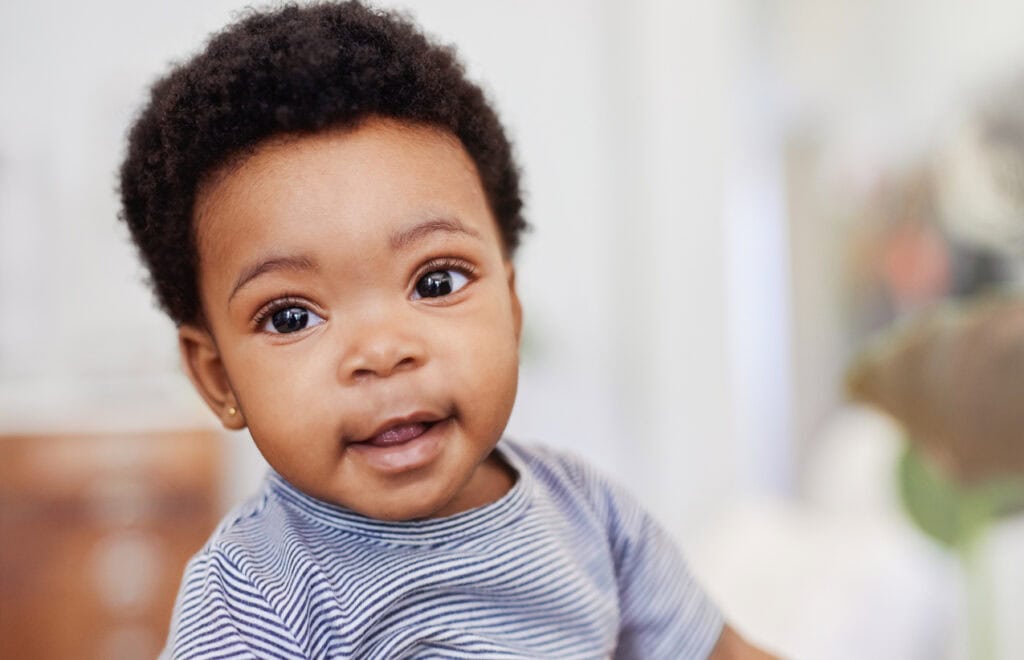You are nearing the end of your child's first year. Perhaps you have successfully put your infant to sleep through the night and are eagerly organizing their first birthday celebration when your 11-month-old suddenly stops sleeping. Your eleven-month-old has suddenly started to resist naps, refuse to sleep in the crib, cry at night, or wake up early. and What you need to know 11 Month Sleep Regression?
As one might expect, there might be some notable variations amongst 11-month-olds. While some will reach that specific milestone sooner, others may require more time. While some Sleep Regression 11 Months may have gone on to other dietary experiences, others may still be breastfeeding. Here are some useful suggestions for your child on milestones, sleep, and eating.
Understanding the Impact of 11 Month Sleep Regression
Expert Insights on 11 Month Sleep Regression

Your kid will go through a significant developmental jump at the age of 11 months, which may have an effect on their sleep.
Your child will take another step toward independence and self-expression with the 11-month-old leap. Your infant is developing their independence in thinking, expressing emotions, making their own choices, and expressing their desires.
At this age, your baby is going through a lot, both emotionally and physically, and all of that activity can affect how well they sleep. It's possible that your baby is showing signs of separation anxiety and refusing to be left alone, even during nighttime, or that they are fighting naps or bedtime for the first time.
The good news is that your baby is growing and developing normally if they seem to be changing this month, exhibiting some new challenging habits, or testing boundaries in unusual ways. You and your infant can both benefit from navigating these changes by continuing to follow your established routines and rhythms as much as possible, just as with other developmental stages.
What's happening in the mind of your child?
Consider the 11-month-old period as a period of transition from infant to toddlerhood. Your kid will need to be carried, fed, and comforted in certain ways, much like a baby, but they will also be starting to explore their independence more as a toddler
Your baby's body and brain are going through a lot of changes, which can cause some intense feelings. The infant may exhibit more tears, irritation, and even happier feelings in addition to throwing their first fit. Certain babies could quickly reach toddler milestones like walking, uttering words like "dada" or "mama," and sipping from a cup without a cover.
Your baby's brain is constantly picking up new information at this age. By providing an area for them to physically explore, being close by as they try new things, and babyproofing areas you frequent, you can encourage your young explorer to push boundaries in a safe manner. Babies like surprises and discoveries at this age, so you may perform activities like conceal toys for them to locate, play music, and
Make sure to speak with a doctor during your child's checkup if you have any worries at all about your child at this age, such as if they suddenly can't do tasks they once could or if they can't sit up on their own. It's usually preferable to intervene as soon as possible if there are any developmental problems with your kid, so don't be reluctant to discuss your worries and findings with their pediatrician.
How much sleep should an 11 month old get?
Do you know how much sleep a baby that is 11 month sleep regression signs should get? Here's a brief glance:
Wake windows: 3 to 3.5 hours
Number of naps: 2
Sample 11-month old sleep schedule
Babies who are 11 month sleep regression may find it difficult to go asleep because they have realized how much fun it can be to stay awake. As a result, they may reject naps and bedtime.
Although it may be tempting to let your child remain up late (particularly in the hopes of exchanging for a later wake time or an earlier bedtime!), for newborns of this age, sleep generally begets sleep, so as a general rule, adhere to regular naps and bedtimes.
Why is My 11-Month-Old Waking Up at Night?

Developmental changes: When your baby learns to crawl, stand, or walk, for example, it may cause them to become excited or frustrated, which may make it more difficult for them to go asleep.
Sleep pattern transitions: As your baby develops and grows, their sleep habits may change, causing them to wake up more often at night.
Sensitivity to stimuli: Your baby may find it difficult to fall and remain asleep if they are more sensitive to noises, lights, or other environmental stimuli due to their increased awareness of their surroundings.
At this age, a lot of newborns still struggle with separation anxiety, which can make going to sleep and waking up throughout the night more difficult. When you leave the room, your kid can get agitated or may
How Long Does Sleep Regression Last?
While the length of sleep regression varies from newborn to baby, it usually lasts between two and six weeks. Your infant could wake up more during the night, have shorter naps, or have trouble settling asleep at this period. Keep in mind that each infant is unique, thus the precise length and severity of the sleep regression may vary from person to person. Your baby's experience of sleep regression may vary depending on a number of factors, including temperament, sleep patterns, and personal development.
When Will My Baby Start Sleeping Regularly Again?
Generally speaking, a few weeks after the 11 Month Sleep Regression, your baby's sleep habits should start to become better. They should progressively revert to their prior sleeping patterns as they get more used to their new abilities and developmental changes. Try sticking to a regular bedtime and sleep schedule to help your infant adjust more easily. Make sure your baby gets plenty of sleep both during the day and at night.
FAQs
How long does 11 month sleep regression last?
The 11-month sleep regress lasts how long? Alright, time for the good news; normally, they pass in two to six weeks. (But certainly, when those weeks are occurring, they can seem to be counted in dog years.) Sometimes sleep regressions only show up for a few days.
Why is my 11 month old not sleeping through the night anymore?
Start by thinking about if your 11-month-old might have a new health problem, such as illness or teething, if she is suddenly waking up at night crying. If you have excluded physical discomfort, think about if your child is learning a new skill. missed a nap far too early.
Is there a developmental leap at 11 months?
Babies express various emotions and communicate in several ways at 11 to 12 months. They may also take initial steps and more, feed themselves, Good for baby learning and development are talking and listening; singing; reading; moving; playing outside; eating healthily.
How many times should an 11 month old wake up at night?
Aim a minimum of 12 hours, and up to 15 hours of sleep in a 24-hour period at 11 months. Usually, this breaks out in two naps of 2-3 hours during daytime sleep and 11-12 hours at night. Generally speaking, at this age most children require 3 to 3.75 hours of awake time between sleep intervals.
Why is my 11 month old suddenly not sleeping?
Why does my 11-month-old waken and scream at night? Your 11-month-old won't stop crying at night for various different reasons. The most often occurring causes are developmental regression, teething, illness, separation anxiety or schedule modification need.
How do I know if my baby has a sleep disorder?
11 Month Sleep Regression Signs, Typical reactions of newborns suffering nocturnal awakenings or trouble falling asleep could be the following: awakening and sobbing one or more times during the night following a night of previously peaceful sleep. Sobbing as you walk out of the room. Not wanting to turn in for sleep without a parent close by.








